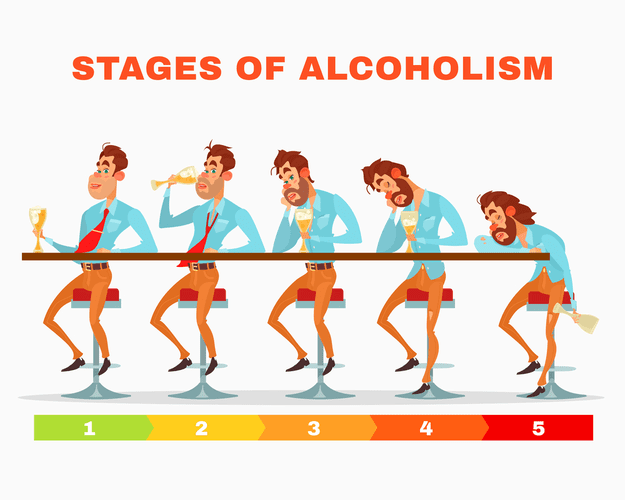Prevalence and correlates of alcohol-induced blackout in a diverse sample of Veterans
Alcohol use disorders are among the conditions most frequently comorbid with PTSD (Kessler et al., 1995). In one study, approximately two out of five students reported a binge episode (4 or more drinks for women, 5 or more for men) in the past two weeks (O’Malley & Johnston, 2002). There are various negative consequences of alcohol use among college students, including motor vehicular accidents, risky sex, sexual assault, fights, physical assaults, and fatalities (Hingson, Heeren, Winter, & Wechsler, 2005).
Blackouts
- Instead, they represent a memory impairment caused by changes in brain activity, making it impossible to recall events even with prompts the next day.
- Surround yourself with friends and trusted individuals who will hold you accountable.
- The purpose of the present research was to investigate the relationships among PTSD symptoms, alcohol-related consequences, and facets of emotion dysregulation.
Melody is here to help you adjust to a life with less (or no) alcohol. The Reframe app equips you with the knowledge and skills you need to not only survive drinking less but thrive while you navigate the journey. Our daily research-backed readings teach you the neuroscience of alcohol, and our in-app Toolkit provides the resources and activities you need to navigate each challenge. Whether it’s painting, writing, or playing music, artistic expression can provide a channel for processing emotions and breaking free from the constraints of trauma.
- If the tests show no neurological or physical cause for your seizures, and your specialist thinks it might be functional seizures, you may be referred to a psychiatrist or a psychologist for diagnosis.
- He is the author of numerous books, including From Bud to Brain and Marijuana on My Mind.
- About 50% of people seeking help for PTSD also struggle with alcohol abuse, and 75% of abuse or trauma survivors report alcohol issues.
- Physical pains, such as a broken hand will heal themselves, emotional pain needs our participation in the healing process.
Veterans and Blackout Drinking

This practice fosters self-awareness, allowing you to identify triggers and feelings that may contribute to alcohol misuse. When you pass out or faint, you experience a temporary loss of consciousness. Timmen L. Cermak, MD, is a psychiatrist who specializes in addiction medicine. He is the author of numerous books, including From Bud to Brain and Marijuana on My Mind. After blacking out, you could wake up and not know where you are, how you got there, or how to get home.
Recent Blog Posts
Cognitive behavioural therapy is a form of psychotherapy focusing on identifying and changing negative thought patterns that can influence one’s behaviour and emotions. ● Certain personality traits, masculinity-related gender norms, or prevailing attitudes towards alcohol in the military may influence this perception. According to them, almost 8% of veterans on a military operation suffered from PTSD, while 11% misused alcohol, compared to 5% and 6% of non-veterans, respectively. Alcohol addiction dates back to ancient times, with historical records from Egypt and Mesopotamia depicting heavy consumption of beer and wine along with the problems caused by it. It was during middle age that doctors finally began to identify and treat addiction as a disease.

Medical tests
Trauma may also lead to risky behaviors, like binge drinking or self-medicating, to cope with the anxiety and fear linked to PTSD. In fact, research shows that people with PTSD are significantly more likely to develop substance use disorders (SUDs), including alcohol use disorder (AUD). Studies estimate that about 30-60% of individuals with PTSD also struggle with substance abuse. This dual diagnosis, known as co-occurring disorders, presents unique challenges because each condition can worsen the other.
The Epidemiology of Post-Traumatic Stress Disorder and Alcohol Use Disorder
Women are more likely to reportsymptoms of alcohol use disordersthan men. Further, women are more likely to experience a traumatic experience due to disproportionately being affected by domestic violence, sexual abuse, and sexual assault. Women affected by PTSD are more likely to use alcohol after the trauma experience, whereas men seem to be more likely to use other substances.
- Breaking the cycle of Alcohol Usage Disorders and PTSD requires acknowledging the problem and seeking help.
- It’s also possible to have both epileptic and functional seizures in rare cases.
- At Virtue Recovery Chandler, we are committed to helping individuals overcome alcohol addiction and lead healthier lives.
If you or someone you love shows these signs, it’s essential to seek professional help. Early intervention can prevent alcohol use from spiraling out of control, and offer healthier ways to cope with trauma. In conclusion, PTSD blackouts represent a significant challenge for many individuals struggling with the aftermath of trauma. These episodes of memory loss and dissociation can have profound impacts on daily life, relationships, and overall well-being. However, it’s important to remember that help is available, and recovery is possible. Alcohol-related blackouts are gaps in a person’s ptsd alcohol blackout memory for events that occurred while they were intoxicated.
“You want to test intoxicated witnesses as soon as possible and get their memory report,” Dysart said, and follow with a second test when they’re sober. Research shows that memory consolidation remains somewhat intact even up to a blood alcohol content of 0.08 percent — the legal limit. About two decades ago, the concept of memory reconsolidation — a process where the mere act of recalling a memory can edit it — landed in the mainstream and bred a misconception.
Inability to feel happiness
Reconsolidation only occurs under certain circumstances, but a flurry of studies and media marijuana addiction coverage led the general public to believe that our memories can’t be trusted. With the increased usage of drugs and alcohol, people are more likely to overdose or consume more than their body is comfortable receiving. This is because higher amounts of alcohol prevent short-term memory from being converted to long-term memory, says Miller.





